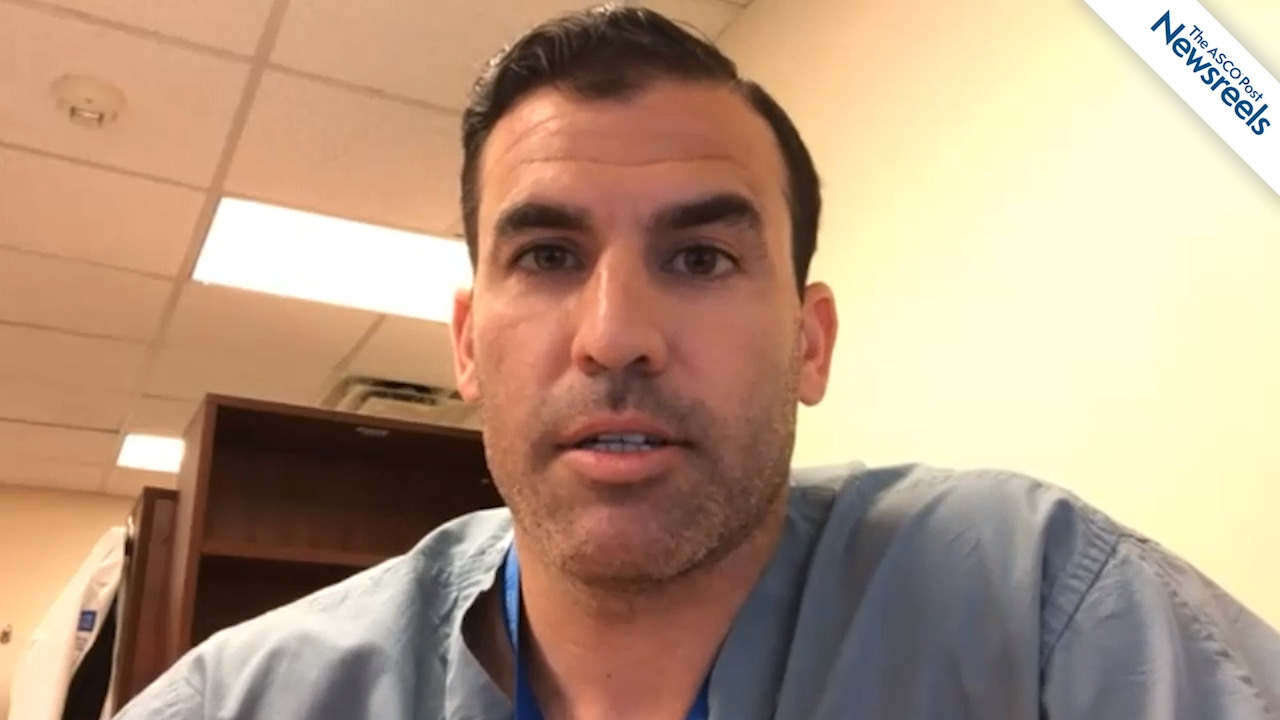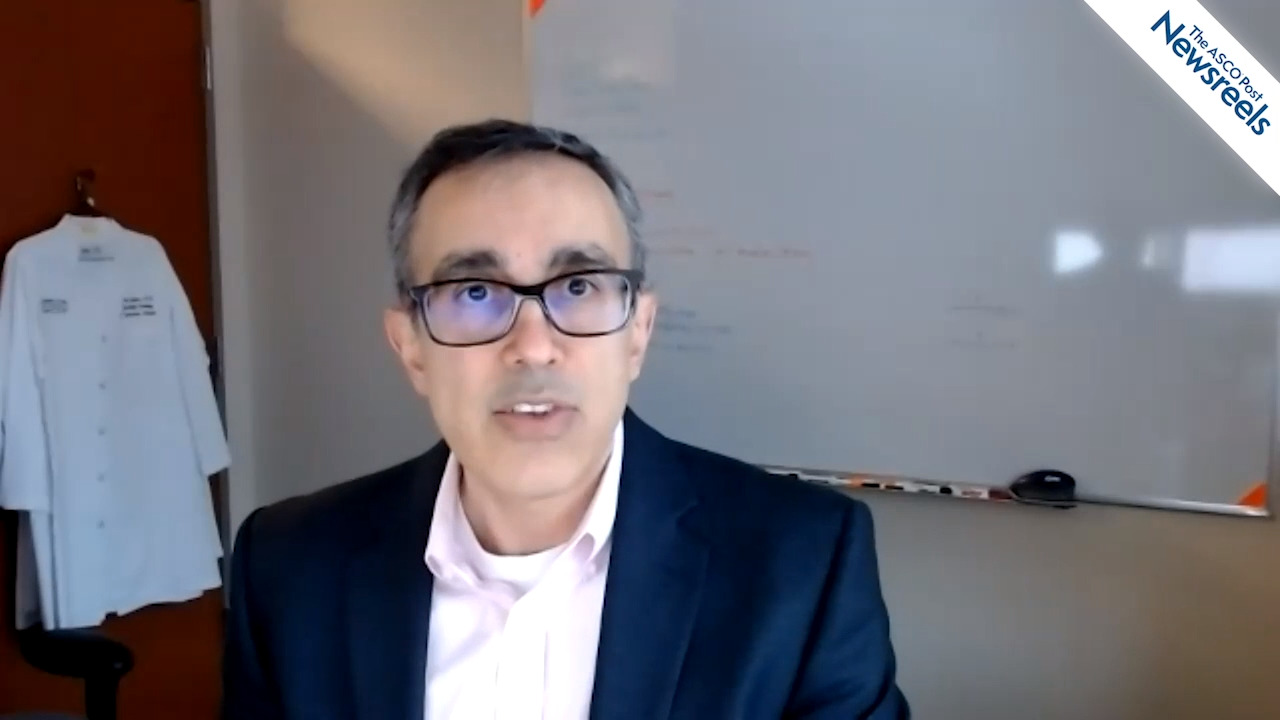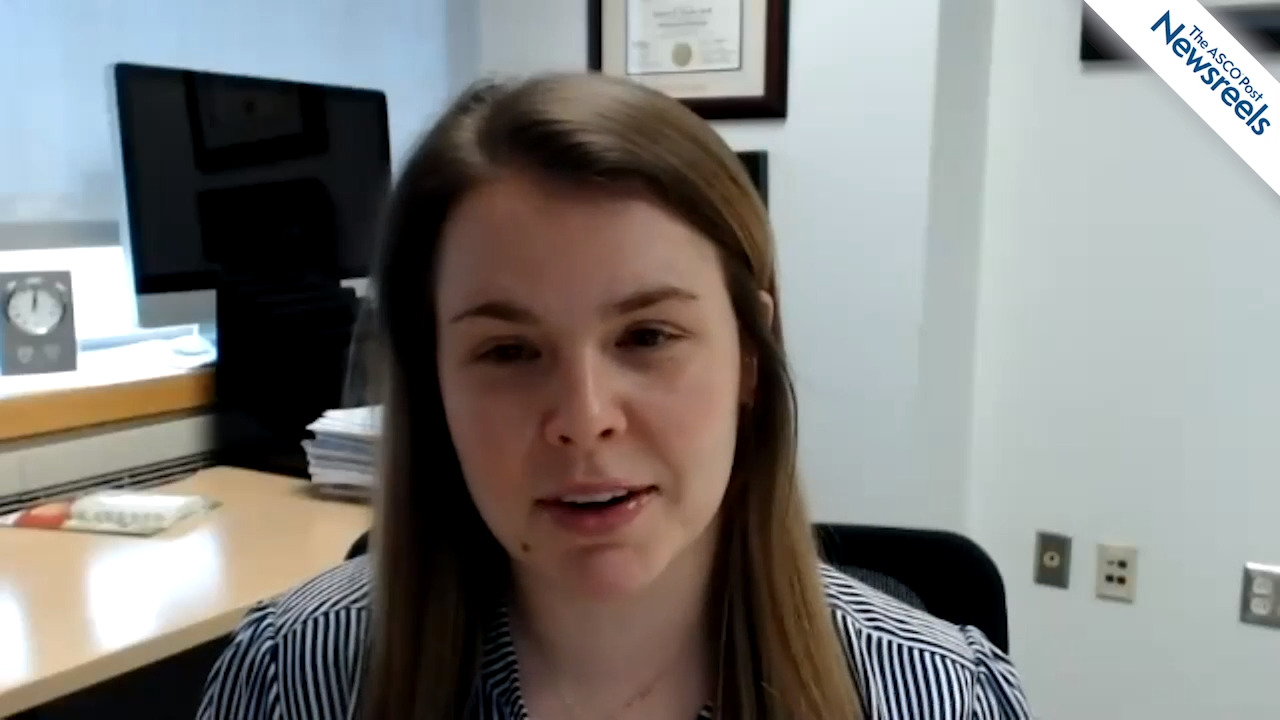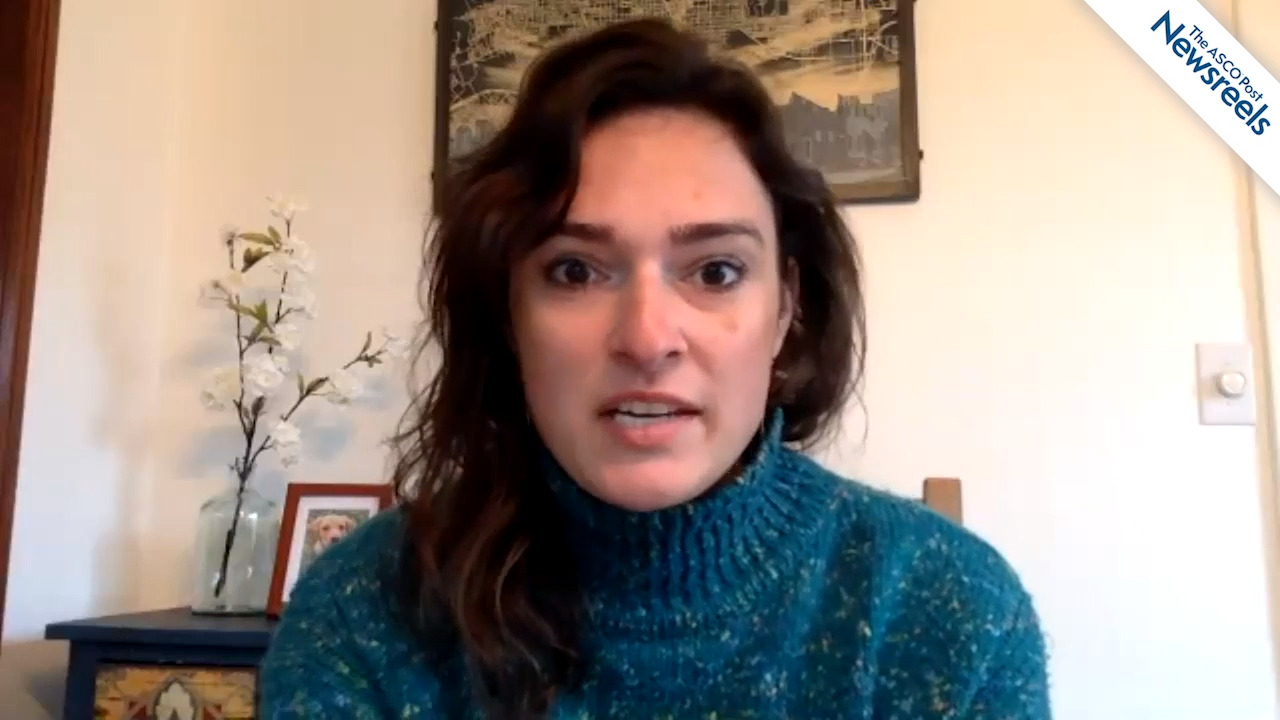Ursula A. Matulonis, MD, on Ovarian Cancer: Niraparib as Maintenance Therapy
SGO 2021 Virtual Annual Meeting on Womens Cancer
Ursula A. Matulonis, MD, of Dana-Farber Cancer Institute, discusses phase III results from the ENGOT-OV16/NOVA study on the long-term safety and efficacy of niraparib as maintenance therapy in patients with platinum-sensitive ovarian cancer with either a BRCA mutation or a tumor with high-grade serous histology. Women in the study have responded to their most recent chemotherapy containing a platinum agent (ID #: 11139).
The ASCO Post Staff
Anthony B. Costales, MD, of the Baylor College of Medicine, discusses results from the MIID-SOC trial, which explored the question of whether laparoscopic surgery for removal of ovarian, fallopian tube, or primary peritoneal cancer following neoadjuvant chemotherapy is feasible, safe, and provides similar outcomes as open surgery.
The ASCO Post Staff
Charles N. Landen, MD, of the University of Virginia, discusses results from the first clinical trial in ovarian cancer to demonstrate that neither a BRCA1/2 mutation nor a homologous recombination deficiency improves sensitivity to a therapeutic PD-L1 blockade in patients receiving atezolizumab vs placebo combined with carboplatin, paclitaxel, and bevacizumab for newly diagnosed disease (ID #10240).
The ASCO Post Staff
Amir A. Jazaeri, MD, of The University of Texas MD Anderson Cancer Center, discusses data on the safety and efficacy of adoptive cell transfer using autologous tumor-infiltrating lymphocytes (LN-145) to treat patients with recurrent, metastatic, or persistent cervical carcinoma whose tumors have progressed on prior systemic therapy (ID # 10224).
The ASCO Post Staff
Laura Chambers, DO, of the Cleveland Clinic, discusses data showing that combining paclitaxel and cisplatin vs cisplatin alone with hyperthermic intraperitoneal chemotherapy at interval debulking surgery improved progression-free survival. There was no difference in postoperative complications, length of stay, or time to chemotherapy, but admission to intensive care units did increase.
The ASCO Post Staff
Lauren Thomaier, MD, of the University of Minnesota, discusses the genetic variants found to be associated with an increase in chemotherapy-induced neuropathy symptoms in a cohort of gynecologic cancer survivors. Combining these variants with clinical characteristics may provide an important treatment tool (ID# 10253).





